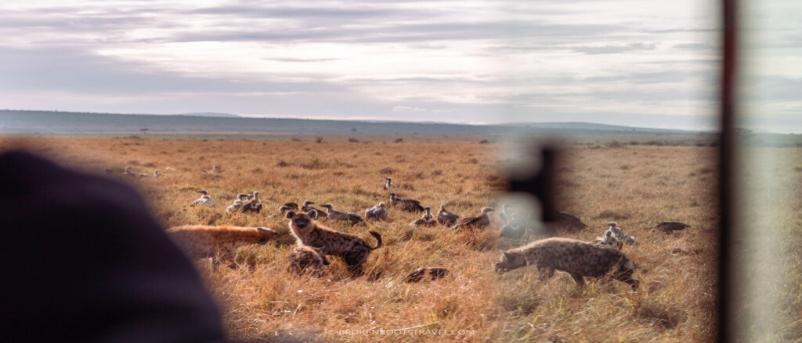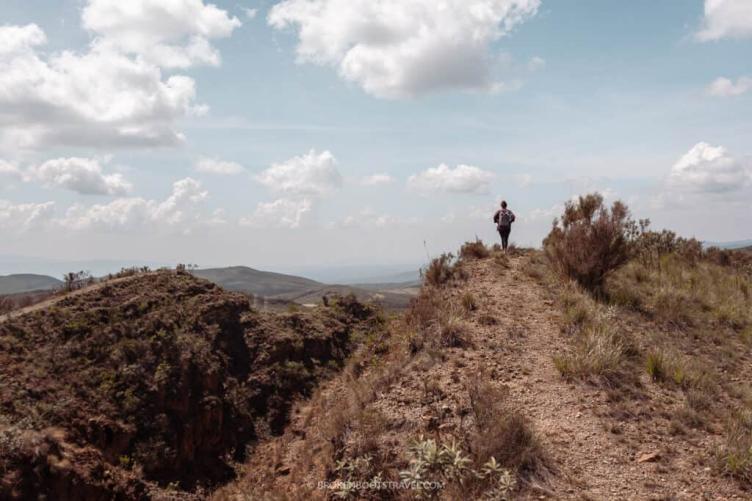Traveling in Kenya can be an exhilarating and memorable experience, but it's essential to be adequately prepared before embarking on your journey. This article will provide a comprehensive guide to traveling in Kenya, from obtaining the necessary visas and vaccinations to packing the right essentials. Check with your local embassy or consulate for specific visa requirements.
Vaccinations and Health Considerations
Kenya has high rates of malaria and other infectious diseases, so taking appropriate health precautions is essential. Visitors to Kenya should receive vaccinations for yellow fever, typhoid, and hepatitis A and B. Additionally, taking antimalarial medication is highly advised, as mosquitoes carrying the disease are prevalent in many parts of the country. When traveling in Kenya, drinking bottled water and avoiding consuming tap water or food washed with it is essential—additionally, pack sunscreen, insect repellent, and any necessary prescription medications.
What to Pack for a Trip to Kenya
When packing for a trip to Kenya, it's essential to remember the country's varied climate and terrain. Kenya's weather ranges from hot and humid along the coast to cool and dry in the highlands. Packing lightweight clothing made of natural fibers such as cotton and linen is advisable, along with a hat to protect against the sun. During the cooler months, a light jacket or sweater may be necessary.
For safari trips, it's recommended that you bring neutral-colored clothing, such as khakis or greens, to blend in with the natural surroundings. Additionally, packing sturdy, comfortable walking shoes or hiking boots is crucial for exploring rugged terrain. Other items to consider include a camera and binoculars for wildlife viewing, a power adapter for charging electronic devices, and a backpack for carrying essentials during the day.
Transportation in Kenya
Kenya's transportation infrastructure is relatively well-developed, with several modes of transport available. The most common form of transportation is by matatu, a shared minibus. Matatus are inexpensive but can be crowded and uncomfortable, with little regard for safety regulations.
Taxis are also prevalent in Kenya's major cities and can be hailed on the street or booked in advance. Be sure to negotiate the fare before getting in the taxi, as prices vary widely depending on the driver. Domestic flights are available between major cities and national parks for longer journeys. These flights are relatively affordable and can save time when traveling long distances.
Things to Do and See in Kenya
Kenya has diverse landscapes and abundant wildlife, making it an ideal destination for nature lovers and adventure seekers. Below are some of the top attractions and activities to consider when planning your trip:
Masai Mara National Reserve
The Masai Mara National Reserve is Kenya's most famous national park, renowned for its vast open plains and annual wildebeest migration. The park has abundant wildlife, including lions, elephants, giraffes, and zebras.

Amboseli National Park
Amboseli National Park is located in southern Kenya and is famous for its stunning views of Mount Kilimanjaro, Africa's highest peak. The park is home to large herds of elephants and other wildlife, making it a popular destination for safari tours.
Staying healthy in Kenya
When traveling to Kenya, it is important to take precautions to stay healthy. One of the biggest health concerns in Kenya is malaria, which is transmitted by mosquitos. Visitors should take antimalarial medication, use mosquito nets while sleeping, and wear insect repellent with DEET. It is also important to drink only bottled water and avoid ice in drinks. Visitors should also avoid eating street food and only eat food that has been thoroughly cooked and prepared in hygienic conditions.
What to pack for a trip to Kenya
When packing for a trip to Kenya, it is important to pack for the activities you plan. If you plan on safari, pack comfortable and practical clothing such as long-sleeved shirts and pants, a hat, sunglasses, and sturdy shoes. If you plan on visiting the coast or spending time in Nairobi, pack lighter clothing suitable for warmer temperatures. Other items to consider packing include:
- A first aid kit.
- Insect repellent.
- Sunscreen.
- A reusable water bottle.
- A camera to capture all the incredible sights.

Conclusion
Kenya is a beautiful and diverse country that offers a range of experiences for travelers. From safari to exploring vibrant cities, there is something for everyone. However, it is important to plan your trip carefully and take precautions to stay safe and healthy. Following the tips and advice outlined in this guide, you can have a safe and enjoyable trip to Kenya and create unforgettable memories that will last a lifetime.

Daniel Jackson Feb 01, 2023
The top hotels in Orlando with pools, slides, and water parks you should visit

Daniel Jackson Mar 01, 2023
Authentic Slow Travel Tuscany Tours of Italy

Daniel Jackson Feb 01, 2023
Amelia Island, Florida Attractions and Activities for Kids

Juliana Daniel Apr 10, 2023
What are the best luxury beach resorts in florida?

Juliana Daniel Feb 24, 2023
Discover Your Ideal Adventure Itinerary for Asheville

Sean William Apr 10, 2023
What us islands can you fly to without a passport?

Daniel Jackson Mar 02, 2023
Budget Safari at Addo National Park

Juliana Daniel Mar 11, 2023